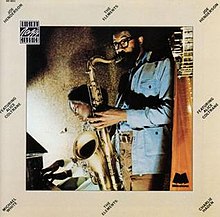
Ptah, the El Daoud, recorded and released in 1970, is the third solo album by Alice Coltrane. The album was recorded in the basement of her house in Dix Hills on Long Island, New York.
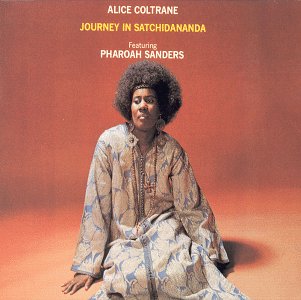
Journey in Satchidananda is the fourth solo album by Alice Coltrane. Four of the album's tracks were recorded at the Coltrane home studios in Dix Hills, New York, in November 1970, while the remaining track was recorded live at the Village Gate in July of that year. It was released by Impulse! Records in 1971. On the album, Coltrane appears on piano and harp, and is joined by saxophonist Pharoah Sanders, bassists Cecil McBee and Charlie Haden, and drummer Rashied Ali. Vishnu Wood also appears on oud on the live track, while the studio recordings also feature Majid Shabazz on bells and tambourine and Tulsi on tanpura.

Welcome is the fifth studio album by Santana, released in 1973. It followed the jazz-fusion formula that the preceding Caravanserai had inaugurated, but with an expanded and different lineup this time. Gregg Rolie had left the band along with Neal Schon to form Journey, and they were replaced by Tom Coster, Richard Kermode and Leon Thomas, along with guest John McLaughlin, who had collaborated with Carlos Santana on Love Devotion Surrender. Welcome also featured John Coltrane's widow, Alice, as a pianist on the album's opening track, "Going Home" and Flora Purim on vocals. This album was far more experimental than the first four albums, and Welcome did not produce any hit singles.
Leon "Ndugu" Chancler was an American pop, funk, and jazz drummer. He was also a composer, producer, and university professor.
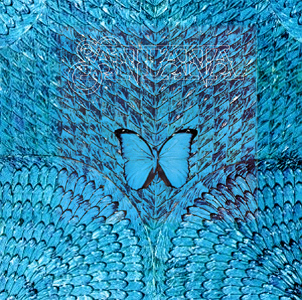
Borboletta is the sixth studio album by the American Latin rock band Santana. It is one of their jazz-funk-fusion oriented albums, along with Caravanserai (1972), and Welcome (1973). Non-band albums by Carlos Santana in this style also include Love Devotion Surrender (1973) with John McLaughlin and Illuminations (1974) with Alice Coltrane, Jack DeJohnette and Jules Broussard. The guitarist leaves much room to percussion, saxophone and keyboards to set moods, as well as lengthy solos by himself and vocals. The record was released in a metallic blue sleeve displaying a butterfly, an allusion to the album Butterfly Dreams (1973) by Brazilian musician Flora Purim and her husband Airto Moreira, whose contributions deeply influenced the sound of Borboletta. In Portuguese, borboleta means "butterfly".

Mwandishi is the ninth album by jazz pianist Herbie Hancock, released in 1971. It is the first album to officially feature Hancock’s ‘Mwandishi’ sextet consisting of saxophonist Bennie Maupin, trumpeter Eddie Henderson, trombonist Julian Priester, bassist Buster Williams and drummer Billy Hart.

Liberation Music Orchestra is a band and jazz album by Charlie Haden released in 1970, Haden's first as a band leader.

The Ballad of the Fallen is a jazz album by bassist Charlie Haden, with arrangements by Carla Bley, that was recorded in 1982 and released in 1983. The album was voted jazz album of the year in Down Beat magazine's 1984 critic's poll. Haden and Carla Bley placed first in that 1984 poll's Acoustic Bass and Composer categories, respectively.
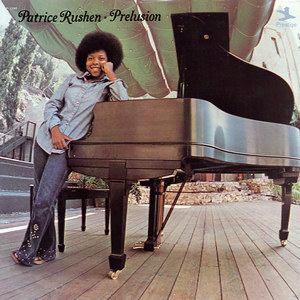
Prelusion is the debut album from jazz musician and later R&B recording artist Patrice Rushen. The first of three albums she would record with Prestige Records, the album was mainly Instrumental jazz which was her main focus as an artist before focusing on popular R & B recordings four years later after signing with Elektra Records. Released in 1974, the album showed great promise for Rushen in the Instrumental jazz genre with songs like "Haw-Right Now", "Shortie's Portion", and "Puttered Bopcorn".

Before the Dawn was the second album by jazz/R&B singer Patrice Rushen. While 1974's Prelusion was essentially a straight-ahead record with fusion references, 1975's Before the Dawn album was essentially a fusion album. With this album Rushen brings a fusion of R&B, pop, and rock elements to her jazz foundation.

Karma is a jazz recording by the American tenor saxophonist Pharoah Sanders, released in May 1969 on the Impulse! label, with catalog number AS 9181. A pioneering work of the spiritual jazz style, it has become Sanders' most popular and critically acclaimed album.

Eternity is an album by Alice Coltrane. It was recorded in August through October, 1975, and was released in 1976 by Warner Records, her first release with the label. On the album, Coltrane is joined by ensembles of varying size. It was Coltrane's first album following both her move to California and her decision to become a monastic.

V.S.O.P. is a 1977 double live album by keyboardist Herbie Hancock, featuring acoustic jazz performances by the V.S.O.P. Quintet, jazz fusion/ jazz-funk performances by the ‘Mwandishi’ band and The Headhunters. The concert was advertised as a "Herbie Hancock Retrospective," and Miles Davis, who was several months into his temporary retirement, was advertised as playing with the V.S.O.P. group. According to concert attendees, on the night of the show a handwritten sign was posted on the lobby door announcing that Davis would not be playing, but that Hubbard would be appearing instead.

Fort Yawuh is a jazz album by American pianist and composer Keith Jarrett. Originally released in 1973 by Impulse! Records, it marks the beginning of the label’s relationship with Jarrett. Recorded live at the Village Vanguard on February 24, 1973 by Jarrett's "American Quartet": Dewey Redman on tenor saxophone, Charlie Haden on acoustic bass, Paul Motian on drums, plus percussionist Danny Johnson. The title of the album is an anagram of "Fourth Way," a reference to George Gurdjieff's fourth path of self-awareness.

Back Hand is an album by American jazz pianist Keith Jarrett recorded in two sessions in October 1974 that also gave way to the album Death and the Flower. Originally released in 1975 by Impulse!, it features performances by Jarrett's American Quartet, which included Dewey Redman, Charlie Haden and Paul Motian along with Guilherme Franco added on percussion. For a long time, the album remained a relatively obscure work until it was resuscitated by Impulse! years later.
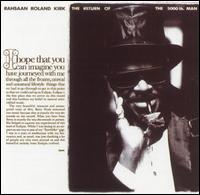
The Return of the 5000 Lb. Man is an album by the jazz multi-instrumentalist Rahsaan Roland Kirk.
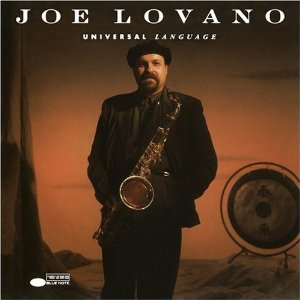
Universal Language is an album by the American jazz saxophonist Joe Lovano recorded in 1992 and released on the Blue Note label.
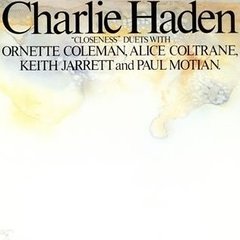
Closeness is an album of duets by bassist Charlie Haden recorded in 1976 and released on the Horizon label.
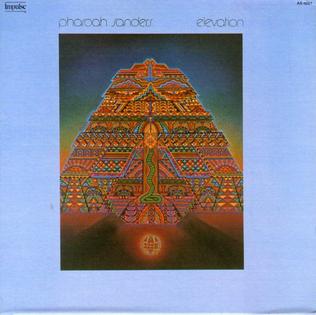
Elevation is a live album by American saxophonist and composer Pharoah Sanders, released in 1973 on the Impulse! label.

The Mastery of John Coltrane, Vol. III: Jupiter Variation is a compilation album by American saxophonist John Coltrane, which features pieces recorded in 1966 and 1967, but not released until 1978 on Impulse! Records as IA 9360. All tracks were previously unreleased, at the time of release. "Number One" may also be found on the CD reissue of Expression, while "Jupiter (Variation)" and "Leo" may be found on the reissue of Interstellar Space. "Peace on Earth", with posthumous overdubbings, can be found on Infinity. The version here is the original.
